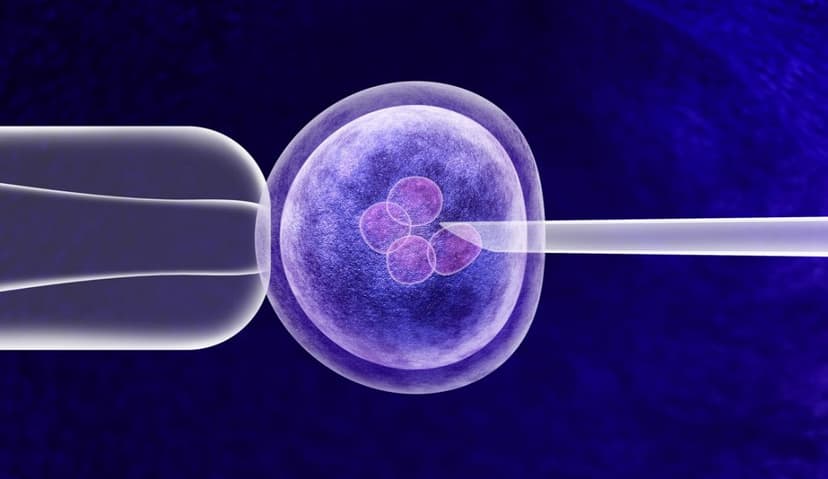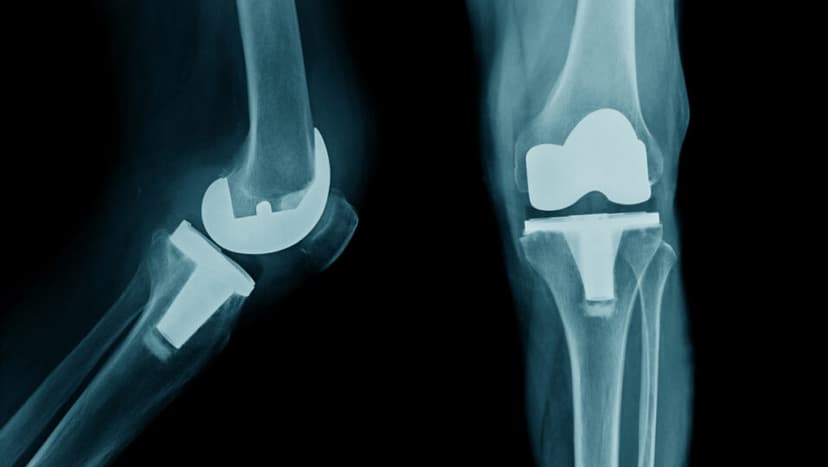Contents
IVF in Turkey has become a preferred option for couples who want transparent medical care, reasonable treatment costs, and a streamlined process. Unlike many Western countries where patients may wait months before starting treatment, clinics in Turkey typically schedule IVF cycles within days. The combination of clinical expertise, modern laboratory standards, and patient-centered coordination has made Turkey a leading destination for international fertility treatment. This guide explains how IVF works in Turkey, what costs to expect, how success rates vary by age, who is eligible for treatment, and what the journey looks like from the first consultation to embryo transfer.
IVF in Turkey

IVF in Turkey refers to in vitro fertilization procedures provided by licensed fertility clinics that treat both local and international patients. The medical steps are the same as in other countries, involving ovarian stimulation, egg retrieval, laboratory fertilization, and embryo transfer. What often sets Turkey apart, however, is how these treatments are organized. Scheduling is faster, treatment costs are more manageable, and patient support is structured from the beginning to limit stress and uncertainty.
Clinics operate under the regulations of the Turkish Ministry of Health and follow treatment protocols comparable to European standards. Many centers also employ English-speaking physicians and coordinators familiar with guiding international patients through each stage of care.
When working with A-Medical, much of the planning is completed before travel. This includes reviewing medical history, confirming the treatment timeline, outlining expected medication phases, and arranging travel details. As a result, patients can move directly into treatment shortly after arrival without unnecessary waiting.
Key points of the IVF experience in Turkey include:
- IVF cycles can often begin within a few days of reaching the clinic.
- Clinics maintain modern laboratory environments and evidence-based treatment methods.
- Treatment plans are customized according to medical history and fertility test results.
- A-Medical provides initial consultation calls, travel coordination, and translation support.
- English-speaking coordinators assist throughout the entire treatment process.
Why Choose Turkey for IVF?
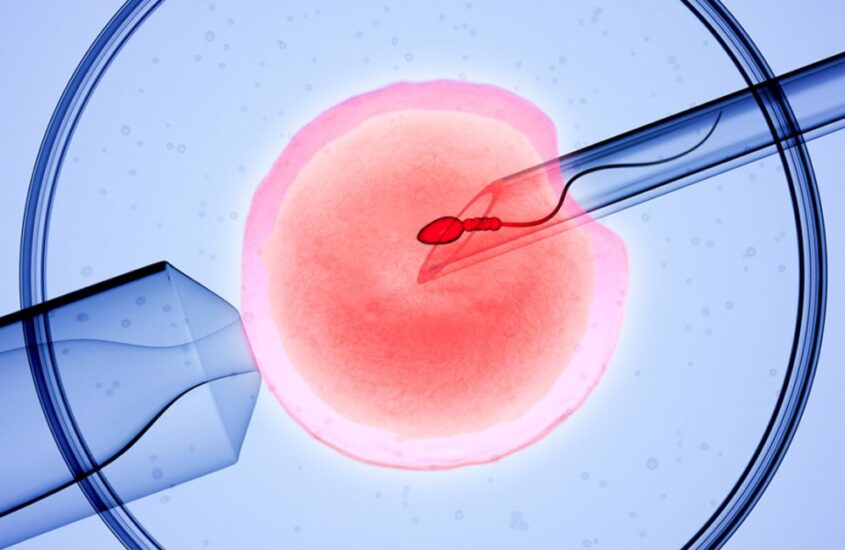
Many couples choose Turkey for IVF because the treatment process is efficient, the medical standards are high, and the overall costs are more manageable compared to many Western countries. While affordability is an important factor, it is the combination of transparent care, organized patient coordination, and experienced medical teams that makes Turkey a strong option for international fertility treatment.
IVF expenses in Turkey are generally lower than in the United States or the United Kingdom, often including consultations, monitoring, egg retrieval, fertilization, and embryo transfer within a single package. This difference in cost does not reflect a reduction in quality. Fertility centers in Turkey follow national regulatory oversight, use modern laboratory systems, and apply established techniques such as blastocyst-stage transfers and, when medically indicated, genetic screening methods.
A notable advantage is the ability to begin treatment without long waiting lists. With pre-arranged scheduling and support services, many patients are able to start their IVF cycle within a short time after arrival. When treatment is coordinated through A-Medical, travel logistics, accommodation planning, and clinic appointments are organized in advance, helping prevent delays that can occur when arranging treatment independently.
The availability of English-speaking medical staff and patient coordinators also plays an important role in the experience. Clear communication helps ensure that patients understand each step of treatment, feel involved in medical decisions, and remain comfortable throughout their stay.
Advantages and Benefits of Choosing Turkey for IVF Treatment
Choosing Turkey for IVF offers both practical and clinical advantages that can make the treatment experience smoother and more predictable. One of the most meaningful benefits is the ability to begin treatment without long waiting periods. In many countries, consultations and treatment cycles can take months to schedule, while in Turkey, patients are typically able to start their cycle shortly after arrival, depending on their menstrual timeline.
Success outcomes in Turkey are supported by experienced fertility specialists and modern laboratory environments. Clinics emphasize individualized treatment rather than applying a single standard protocol to all patients. Medication plans, monitoring schedules, and embryo transfer decisions are tailored to age, ovarian reserve, and previous fertility history, which helps improve the likelihood of achieving a healthy pregnancy.
A further advantage is the availability of coordinated support services designed specifically for international patients. Many fertility centers offer structured packages that include airport transfers, accommodation guidance, translation assistance, and dedicated patient coordinators. This minimizes the stress of navigating a new country and allows patients to focus on their treatment instead of logistics.
Key benefits commonly noted by patients include:
• Cost Efficiency: IVF treatment in Turkey is often more affordable than in many Western countries, even when travel and accommodation are considered.
• Inclusive Support: Treatment packages may include transportation and translation services, making the experience easier for patients traveling from abroad.
• Personalized Medical Care: Treatment plans are tailored to medical history, test results, and age rather than standardized for all patients.
• Quick Treatment Start: No extended waiting lists mean patients can begin their cycle soon after arriving.
In addition, expectations are clearly discussed in advance. Through A-Medical, patients have the opportunity to speak directly with the medical team before traveling. This helps ensure clarity around the process, treatment options, and expected timeline, allowing patients to feel informed, confident, and supported from the beginning.
What is The Success Rate of IVF in Turkey?
IVF success rates in Turkey vary depending on factors such as age, ovarian reserve, sperm quality, and previous treatment history. Younger women generally have higher success rates, as egg quality plays a significant role in embryo development. For women under 35, many clinics report outcomes similar to those seen in established fertility centers in Europe and North America. As age increases, success rates naturally decline, and treatment planning becomes more individualized to support the best possible outcome.
For women over 40, the likelihood of pregnancy with IVF depends heavily on the number of eggs available and how embryos develop in the laboratory. In these cases, clinics may recommend planning for more than one treatment cycle to improve cumulative success, especially when ovarian reserve is limited or previous IVF cycles have been unsuccessful. The focus is not only on creating embryos, but on selecting the one with the highest chance of implantation.
Clinics known for strong IVF outcomes typically prioritize:
• Experienced embryologists and consistent lab quality
• Advanced incubator systems that closely monitor embryo development
• Medication protocols tailored to each patient rather than used universally
Patients who work with A-Medical are referred to fertility centers experienced in managing a broad range of cases, including low ovarian reserve or past IVF failures. Throughout treatment, medical and coordination teams follow patients closely, ensuring that decisions about stimulation, timing, and embryo transfer are made with clarity and explanation at every step.
How Long is the Waiting Time for IVF in Turkey?

One of the key advantages of IVF treatment in Turkey is the short waiting time. Many patients are able to begin their cycle within a few days of arriving, depending on their menstrual schedule and the treatment plan that has been prepared in advance. This contrasts sharply with public health systems in some countries, where couples may wait several months before a first appointment or treatment slot becomes available.
This faster timeline can be particularly valuable for women over 35, as ovarian reserve can decline with time. Clinics that work with A-Medical often set aside dedicated appointment availability for international patients and organize required evaluations ahead of the visit. Before traveling, medical records are reviewed and the treatment plan is outlined, so the initial consultation, ultrasound, and medication schedule are already arranged.
Once in Turkey, treatment typically begins promptly, and many patients complete the full IVF cycle, from stimulation to embryo transfer, within approximately 15 to 20 days. This level of coordination helps reduce stress and uncertainty, especially for individuals who have experienced long delays or fragmented communication in previous treatment attempts. Having accommodation, transportation, and clinic visits organized in advance also allows patients to focus on their medical care rather than logistical planning.
IVF Eligibility in Turkey: Who Can Receive Treatment?
In Turkey, IVF treatment is legally offered to married heterosexual couples. Eligibility is determined through both legal requirements and medical evaluation. Before confirming treatment, clinics assess ovarian reserve, hormone levels, reproductive history, and general health. Male infertility does not prevent treatment, as techniques such as ICSI are routinely used to support fertilization when needed.
Basic eligibility guidelines include:
• The couple must be legally married.
• The woman is generally treated up to the age of 46, depending on ovarian reserve.
• Sufficient egg reserve and reproductive health are required for safe treatment.
• The male partner must provide a viable sperm sample or have sperm stored in advance.
• Egg or sperm donation and surrogacy are not permitted under Turkish law.
To avoid unnecessary travel, medical records are reviewed before arrival. Through A-Medical, patients participate in a free online consultation with the clinic to confirm suitability, discuss treatment expectations, and plan the cycle timeline in advance.
Age Limits for IVF in Turkey
In Turkey, the legal upper age limit for IVF treatment in women is 46. However, many clinics generally treat patients up to around age 44, since egg quantity and quality tend to decrease more noticeably after this age. When women are older than 44, clinics typically request additional tests to assess ovarian reserve and overall reproductive health before moving forward. IVF may still be considered in specific cases, but expectations are discussed clearly so patients understand the likely treatment outcomes.
There is no legal age limit for men, although additional evaluation, such as sperm DNA fragmentation testing, may be recommended when the male partner is older. Before travel, each case is reviewed individually. With A-Medical coordination, medical history and test results are assessed in advance so the clinic can determine suitability and outline a realistic treatment plan beforehand.
IVF Process in Turkey: Step-by-Step Clinical Journey

The IVF process in Turkey is structured to reduce uncertainty and help patients move through each stage with clear medical guidance. While the core steps of IVF are the same worldwide, clinics in Turkey focus on individualized treatment planning, medication adjustments based on real-time monitoring, and precise timing in the laboratory to support healthy embryo development.
Step 1: Pre-Treatment Evaluation
Before traveling, the clinic reviews medical history, hormone test results, pelvic ultrasound findings, and previous treatment outcomes. This assessment helps determine:
- Suitable stimulation protocol (mild, standard, or high-response)
- Expected medication dosage
- Whether ICSI is recommended
- Ideal timing based on the menstrual cycle
Patients receive a draft treatment schedule before departure, so there are no unexpected delays on arrival.
Step 2: Ovarian Stimulation and Monitoring
Upon arrival, treatment begins with tailored stimulation medication to encourage controlled follicle development. Monitoring appointments every 2–3 days track:
- Follicle size and number
- Estradiol and LH hormone levels
- Endometrial thickness
If follicles grow unevenly or hormone levels change, the doctor adjusts medication rather than using a fixed protocol. This flexibility helps support egg quality and reduces the risk of overstimulation.
Step 3: Egg Retrieval
When follicles reach the appropriate size, a trigger injection is administered. Egg retrieval takes place about 34–36 hours later under light sedation. The procedure is short, and most patients return to their hotel the same day.
A sperm sample is collected at the same time or thawed if previously frozen.
Step 4: Laboratory Fertilization and Embryo Culture
In the lab, eggs are fertilized using standard IVF or ICSI depending on sperm parameters. Embryologists closely monitor embryo development in controlled incubator conditions. Many clinics in Turkey use time-lapse embryo monitoring systems, which allow embryologists to observe cell division patterns without exposing embryos to external conditions.
Embryo quality is assessed based on:
- Cell symmetry
- Development speed
- Fragmentation rate
If embryos develop well, clinics often recommend day 5 blastocyst transfer to increase the chance of successful implantation.
Step 5: Embryo Transfer
The best-quality embryo is selected for transfer to the uterus. The transfer is a brief and generally painless procedure. Extra embryos, if available and suitable, may be frozen for future attempts or delayed transfer cycles.
Patients typically remain in Turkey for an additional 1 to 3 days after transfer for follow-up check-ins.
Step 6: Post-Transfer Guidance and Pregnancy Test
About 10 to 12 days after transfer, a blood test (β-hCG) confirms whether pregnancy has occurred. This test can be done either in Turkey or at home. Clinics continue to provide follow-up guidance through video calls or secure messaging.
Day 3 vs Day 5 Embryo Transfer: Which Approach Is Recommended and Why?
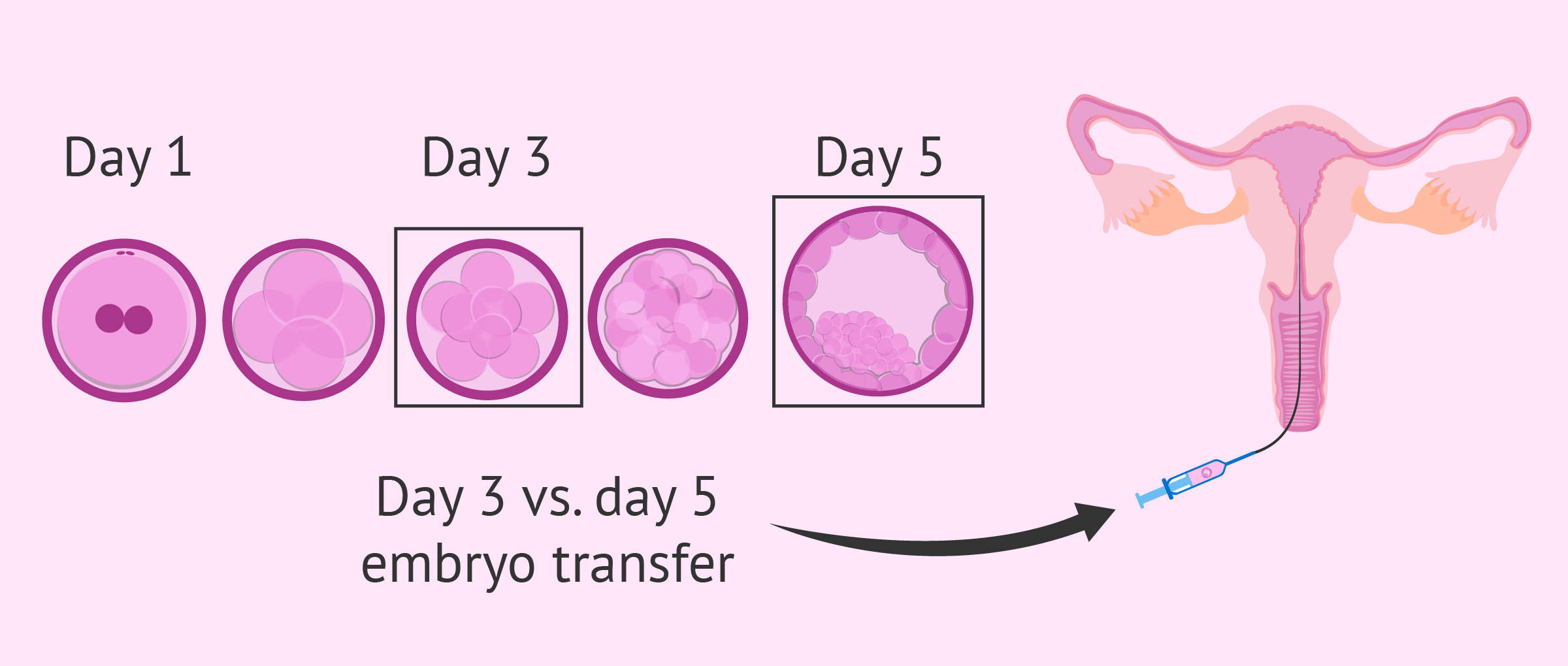
Embryo transfer timing is an important part of the IVF process, and the decision to transfer on day 3 or day 5 depends on embryo development, egg quality, sperm parameters, and the patient’s previous fertility history. There is no single approach that works best for everyone. Instead, the embryology team evaluates how embryos are progressing and selects the timing that supports the highest chance of implantation.
Day 3 Embryo Transfer
Day 3 embryos are at the cleavage stage, usually containing 6 to 8 cells. A day 3 transfer may be recommended when:
- The number of developing embryos is limited
- The clinic wants to avoid extended culture stress
- Previous embryo growth has shown sensitivity in culture
In these situations, transferring earlier may give the embryo a more natural environment sooner.
Day 5 Embryo Transfer (Blastocyst Transfer)
Day 5 embryos are called blastocysts, and they have undergone more cell division and organization. A day 5 transfer may be recommended when:
- Several embryos are developing well and reaching similar quality
- Embryologists want to select the strongest embryo based on development pattern
- The clinic aims to support higher implantation potential
A blastocyst has already demonstrated its ability to progress through early developmental checkpoints, which may increase the chance of successful implantation.
How Clinics Decide Which Day Is Best
The decision is made by the fertility specialist and embryology team after reviewing:
- Number of eggs retrieved
- Quality and rate of embryo cell division
- Previous IVF outcomes
- Patient’s age and ovarian reserve profile
The focus is not only on embryo appearance but also on development patterns over time. Time-lapse imaging and consistent monitoring help identify embryos with the highest implantation potential.
Freezing Extra Embryos
If multiple healthy embryos reach the blastocyst stage, they can be frozen for future use. This offers flexibility for patients who wish to attempt a frozen embryo transfer at a later time, either in Turkey or in their home country.
Is Turkey Safe for IVF?
Turkey is widely recognized as a safe and reliable destination for IVF treatment. Fertility clinics operate under national health regulations and follow medical standards that are consistent with those used in many European countries. Most IVF centers are located in major cities such as Istanbul, Ankara, and Izmir, where healthcare services are well established and regularly monitored by the Ministry of Health.
Clinics that work with A-Medical are accredited, routinely evaluated, and staffed by experienced medical teams, including English-speaking doctors and coordinators who support international patients. Alongside medical care, logistical assistance such as airport transfers, clinic transportation, and translation support helps ensure that communication is clear and the treatment process is smooth and well coordinated.
Is Visa Required for IVF Treatment in Turkey?
In many cases, a separate medical visa is not required for IVF treatment in Turkey. Citizens of many countries, including the United Kingdom, most EU member states, Canada, and several Gulf nations, can either enter visa-free or obtain an electronic visa online. For stays of up to 90 days, a standard tourist visa is usually sufficient.
For patients who plan to stay longer or return for additional treatment cycles, clinics can provide official documentation to support a visa extension if needed. The entry process is generally straightforward, and there are no complex medical requirements for arrival, which helps make Turkey accessible for international fertility care.
Before You Travel: Tests, Timing, and Preparation
Before beginning IVF treatment in Turkey, certain tests are reviewed to determine treatment suitability and plan the ideal medication approach. Clinics generally request the following:
Hormone tests:
- AMH
- FSH
- LH
- Estradiol (E2)
- TSH
- Prolactin
Ultrasound:
- Antral follicle count
- Uterine lining assessment
Male partner:
- Semen analysis within the last 3 months
These results help identify expected response to medication and support correct dosing. If possible, testing should be completed before travel. Treatment is then scheduled to start based on the menstrual cycle, typically within the first days of stimulation. If a cycle begins earlier or later than expected, the clinic provides adjusted timing guidance to maintain the planned protocol.
Cost of IVF in Turkey
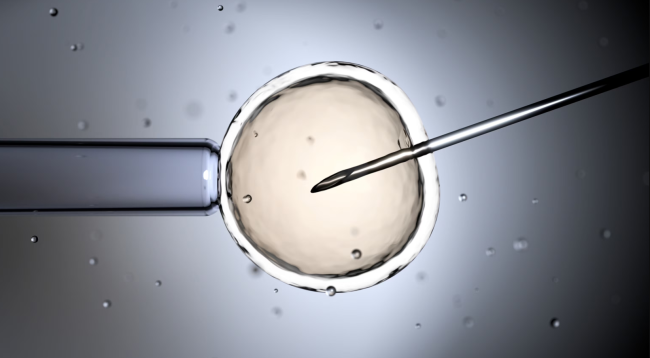
IVF treatment in Turkey generally ranges from about 3,500 to 4,000 USD per cycle. This usually includes medical consultations, monitoring scans, egg retrieval, fertilization in the laboratory, and embryo transfer. Medication expenses can vary depending on the dosage required, which is determined individually based on the patient’s ovarian response.
The final cost may also differ if additional procedures are recommended, such as ICSI, assisted hatching, or extended embryo culture. Even when these are added, patients often find that total treatment expenses in Turkey remain noticeably lower than in many European countries or the United States, where IVF cycles can cost significantly more.
Many clinics offer structured treatment packages designed for international patients. These may include assistance with accommodation, transportation to the clinic, translation services, and follow-up communication after the procedure. This integrated approach helps reduce unexpected expenses and makes it easier for patients to plan the full course of their treatment before traveling.
Best Clinics for IVF in Turkey
The best IVF clinics in Turkey are those that combine experienced medical teams with modern laboratory environments and clear, patient-focused treatment protocols. These clinics typically maintain their own embryology labs, use advanced embryo monitoring technologies, and apply well-established freezing and culture techniques to support embryo development.
Centers that work with A-Medical are selected based on clinical performance, patient feedback, and the quality of support services they provide. Many of these clinics regularly treat international patients, which means they are familiar with organizing medical travel, coordinating documentation, and offering communication assistance for patients who speak different languages.
A key feature of leading IVF clinics in Turkey is their focus on individualized treatment. Medication dosage, monitoring schedules, and embryo transfer timing are adjusted based on each patient’s hormone levels, ovarian response, and fertility history. This personalized approach helps improve treatment consistency and patient comfort throughout the process.
There is no single clinic that is universally the best for everyone. The right choice depends on medical needs, treatment goals, and personal preferences. A-Medical reviews each patient's history and priorities to recommend clinics that are best suited to their specific situation, ensuring that treatment decisions are made thoughtfully and with clear guidance.
Get IVF in Turkey at Clinics with the Highest Success Rate with A-Medical
With A-Medical, you receive IVF treatment at clinics in Turkey with the highest verified success rates, coordinated from start to finish with full patient support. From your first inquiry to your final consultation, every step is structured for clarity, speed, and quality.
The process begins with you sending your medical records for evaluation. Within days, Turkish doctors assess your eligibility, propose a treatment protocol, and provide an estimated cost. You review and approve the plan before travel arrangements begin. Medical tourism for IVF treatment in Turkey is made easier with organized transfer services, clinic bookings, and accommodation assistance.
Upon arrival, A-Medical arranges airport pickup, hotel check-in, and transport to the clinic for your first appointment. Throughout your stay, translators and coordinators are available 24/7. After embryo transfer, patients either return home or remain for a short observation period, depending on the case. Follow-ups continue remotely through video calls.
You’ll also receive a free call or video consultation with your doctor before traveling. This ensures you're not just trusting a brochure or website—you’re hearing directly from the professionals who will be involved in your care.
Frequently Asked Questions
Is IVF painful?
Egg retrieval is performed under light sedation, so patients do not feel pain during the procedure. Embryo transfer is usually painless and does not require anesthesia.
How long do I need to stay in Turkey for IVF?
Most patients stay for 15 to 20 days to complete the full IVF cycle, including stimulation, egg retrieval, and embryo transfer.
Can I work remotely during treatment?
Yes. Many patients continue working during ovarian stimulation. You will only need to attend scheduled monitoring appointments every few days.
What tests should I complete before traveling?
Common requested tests include hormone profile (AMH, FSH, LH, E2), pelvic ultrasound, and semen analysis. These are reviewed before your treatment plan is finalized.
Can IVF treatment be scheduled according to my menstrual cycle?
Yes. Treatment planning is aligned with your natural cycle, and travel dates are coordinated accordingly.
What happens if fewer eggs develop than expected?
Medication or stimulation protocols can be adjusted based on your response. The medical team discusses options and expectations before moving forward.
Can I freeze extra embryos?
Yes. If additional viable embryos develop, they can be frozen for future use, following clinic policy and patient preference.
How soon can I fly after embryo transfer?
Most patients return home within 1 to 3 days after the embryo transfer. Your doctor will confirm the best timing based on your situation.
What medications are used in IVF?
Medications vary depending on ovarian reserve and treatment goals. Your protocol is individualized after reviewing test results.
What lifestyle habits can help improve IVF success?
Maintaining a balanced diet, avoiding smoking, moderating caffeine intake, ensuring adequate sleep, and managing stress can support treatment outcomes. Your clinic may also provide personalized recommendations.
